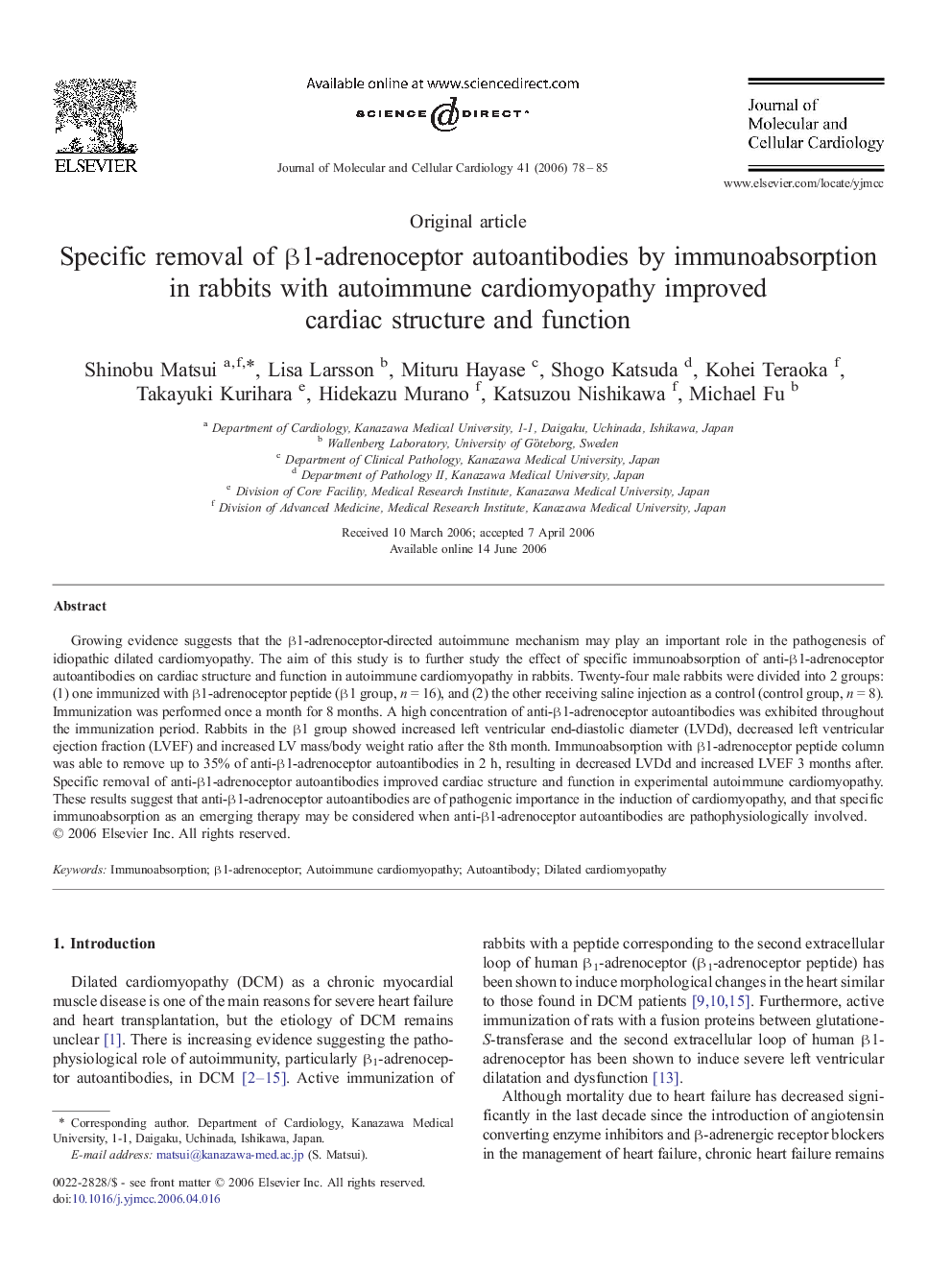| Article ID | Journal | Published Year | Pages | File Type |
|---|---|---|---|---|
| 2192455 | Journal of Molecular and Cellular Cardiology | 2006 | 8 Pages |
Objective.Growing evidence suggests that the β1-adrenoceptor-directed autoimmune mechanism may play an important role in the pathogenesis of idiopathic dilated cardiomyopathy. The aim of this study is to further study the effect of specific immunoabsorption of anti-β1-adrenoceptor autoantibodies on cardiac structure and function in autoimmune cardiomyopathy in rabbits.Methods and results.Twenty-four male rabbits were divided into 2 groups: (1) one immunized with β1-adrenoceptor peptide (β1 group, n = 16), and (2) the other receiving saline injection as a control (control group, n = 8). Immunization was performed once a month for 8 months. A high concentration of anti-β1-adrenoceptor autoantibodies was exhibited throughout the immunization period. Rabbits in the β1 group showed increased left ventricular end-diastolic diameter (LVDd), decreased left ventricular ejection fraction (LVEF) and increased LV mass/body weight ratio after the 8th month. Immunoabsorption with β1-adrenoceptor peptide column was able to remove up to 35% of anti-β1-adrenoceptor autoantibodies in 2 h, resulting in decreased LVDd and increased LVEF 3 months after.Conclusions.Specific removal of anti-β1-adrenoceptor autoantibodies improved cardiac structure and function in experimental autoimmune cardiomyopathy. These results suggest that anti-β1-adrenoceptor autoantibodies are of pathogenic importance in the induction of cardiomyopathy, and that specific immunoabsorption as an emerging therapy may be considered when anti-β1-adrenoceptor autoantibodies are pathophysiologically involved.
